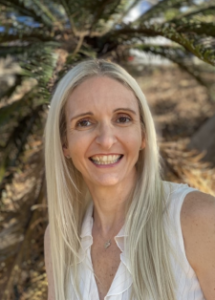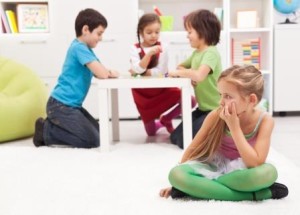Starting school is a big change in the lives of both a child and their parents; it can be an exciting but also a worrying time.
Many parents wonder: Is my child ready for school?
According to researchers,
“Readiness does not reside solely in the child but reflects the environment in which children find themselves – their families, early childhood settings, schools, neighbourhoods and communities” (Kagan & Rigby, [1]).
For Emig et al (2001), “School readiness is now seen as having four interrelated components:
- Child’s readiness for school
- School’s readiness for child
- Capacity of families to provide developmental opportunities
- Capacities of communities to provide developmental opportunities.”
As mentioned by Kagan and Rigby (2003): “ready families + ready early childhood services + ready communities + ready school = ready child”.
Knowing that you are ready and that your child is physically, emotionally and cognitively ready are important, if you feel that your pre-schooler may benefit from delaying their entrance to Prep.
School Enrolment in Queensland
The Education Queensland website states that “it is not compulsory for your child to attend the Prep year as soon as they are old enough – 5 by the 30 June in the year they enrol. You can delay their entry by one year if you feel they are not ready, but when they start school, they will start in the Prep year.’’
How to Check your Child’s Readiness
Here are some of the questions that parents can ask themselves, if they are questioning their child’s readiness for school:
- Can my child have ideas of their own?
- Can my child follow more than one instruction at a time?
- Is my child interested in their peers?
- Does my child play with other children?
- Can my child deal with emotions such as frustration and anxiety?
- Can my child control their behaviour?
- Is my child independent?
Family Influences
NASP (10) explains that the family environment is very important and does have a huge influence on school readiness.
Here are some family factors to consider:
- “Low family economic risk: poor readiness for school is often associated with poverty.”
- “Stable family structures: children from stable two-parent homes tend to have stronger school readiness than children from one-parent homes and homes where caregivers change frequently.”
- “Enriched home environment: children from homes where parents talk with their children, engage them in conversations, read to them and engage in forms of discipline such as time-out that encourage self-discipline have stronger readiness skills.”
How Can I Prepare my Child?
There are a number of things that you as a parent can do to help prepare your child for school, such as:
- Playing with letters and numbers;
- Reading to your child;
- Taking time to talk to your child;
- Developing your child’s social skills through playdates, kindy, etc;
- Having a good sleeping routine in place;
- Organising lunch box days to help them practice;
- Helping your child become more independent by encouraging them to pack and carry their bag, to put on their shoes, to eat and drink by themselves, let them go to the toilets on their own, etc.
- Develop a daily routine;
- Go to the school orientation day to visit the school, familiarise your child with the playground, and spend time in the classroom with their new teacher;
- Talk to your child about school using positive examples and adjectives. This will help your child feel more confident and more optimistic about starting school;
- Borrow books from the library and read stories about children starting school.
Some of the indicators that suggest your child may not be quite ready just yet include:
- Not toilet trained;
- Described as socially immature;
- Does not display any willingness or curiosity to engage in new activities;
- Poor expressive language skills;
- Needs help to eat, undress etc;
- Experiences difficulties in regulating emotions;
- Some difficulties with gross and fine motor skills.
Further, you could consider the typical developmental milestones of a 5 year old:
- Movement milestones
- Stands on one foot for 5 seconds
- Hops, somersaults
- Swings, climbs, jumps, skips, runs
- Milestones in hand and finger skills
- Copies triangles and other geometric patterns
- Draws person with body
- Prints some letters
- Dresses and undresses without assistance
- Use forks, spoon and sometimes knives
- Cares for own toilet needs
- Uses pencils, pens, scissors etc
- Language milestones
- Recalls part of a story
- Speaks sentences of more than 5 words
- Uses future tense
- Tells long stories
- Answers and asks simple questions
- Expresses their needs
- Listens to others
- Enjoys books and being read to
- Cognitive milestones
- Can count to 10 and more
- Can correctly name at least 4 colours
- Starts to understand the concept of time
- Shows natural curiosity and interest in learning new things
- Interested in problem solving
- Social and emotional milestones
- Wants to please friends
- Wants to be like their friends
- Can agree on rules
- Likes to sing, dance and act.
(Adapted from the AAP).
When your child does start school, it is common for them to experience feelings such as sadness, stress, anxiety, disappointment and worry. Listening to your child, and praising and encouraging them is paramount. Ask your child what they are scared of, what they are looking forward to etc.
It is important for you child to feel safe, secure and supported. When your child sees that you are positive, and are confident and know that they can do it, it will serve to increase their self-esteem.
Nolan et al. (2009) found that “children displaying dispositions for learning such as curiosity, cooperation, confidence, creativity, commitment, enthusiasm, persistence, imagination and flexibility along with exhibiting a range of skills and processes such as problem solving, inquiry, experimentation, hypothesising, researching and investigating (…) are considered more likely to experience a positive start to school’’.
Many aspects of a child’s life may impact on their readiness for school. If you think that your pre-schooler is not ready for starting Prep, feel free to make an appointment with me and we will discuss your concerns.
 Author: Meggy Delaunay, PG Dip Psych Practice, PG Dip Dev Psych, M Genetic Psych, B Psych, MAPS.
Author: Meggy Delaunay, PG Dip Psych Practice, PG Dip Dev Psych, M Genetic Psych, B Psych, MAPS.
Meggy Delaunay is a psychologist who primarily works with children, adolescents and young adults. She is a registered Psychologist in Australia, New Zealand and France, and can provide therapy sessions in English and French.
To make an appointment try Online Booking. Alternatively, you can call Vision Psychology Brisbane on (07) 3088 5422.
